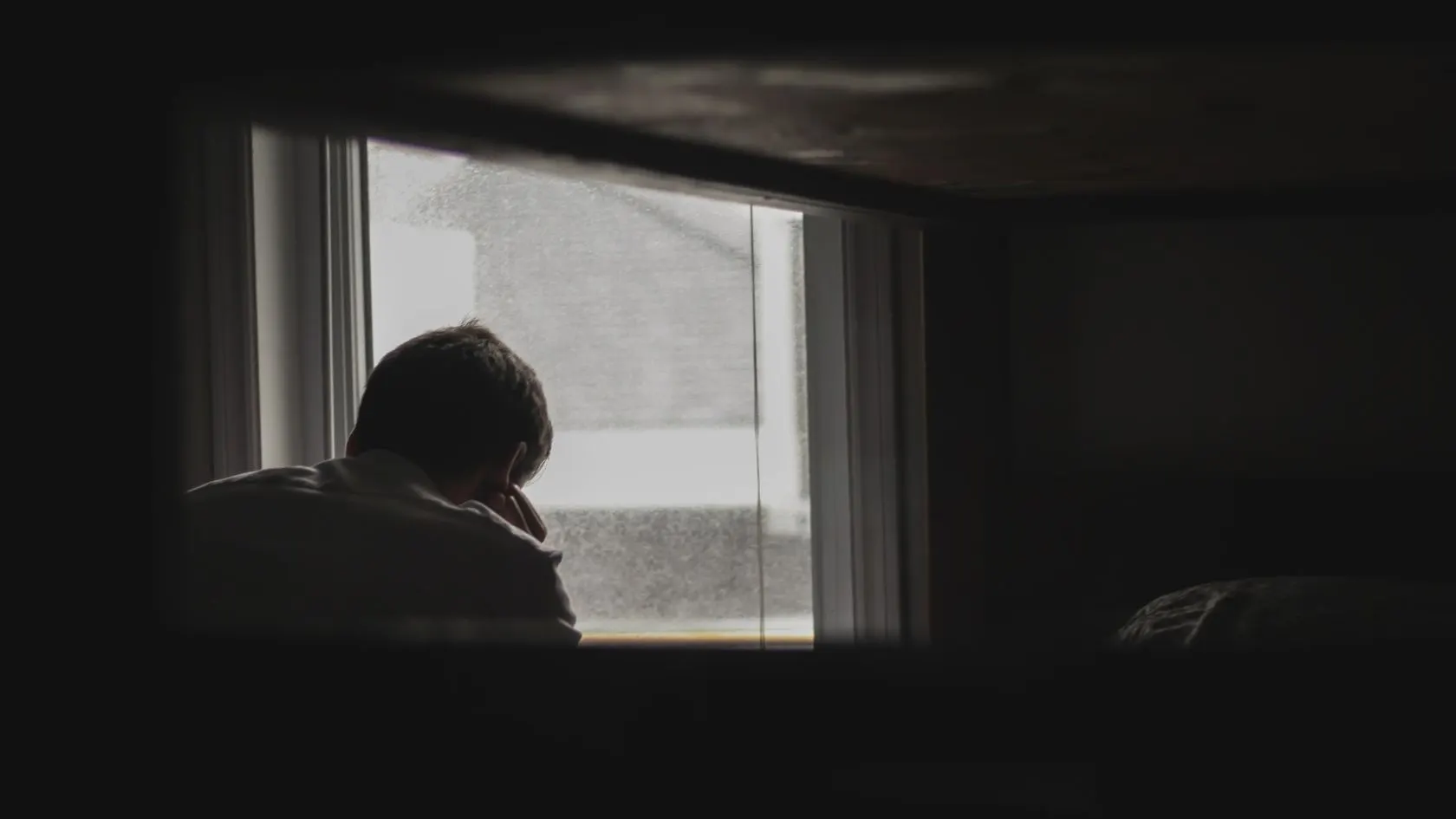Adolescence is a critical time of growth, self-discovery, and, unfortunately, significant challenges. Some teens struggle with behavioral issues, emotional regulation, mental health disorders, and unhealthy coping mechanisms that interfere with their daily lives. When...
Recent Posts
After Residential Treatment: Helping Teens Transition Back Home
Residential treatment can be life-changing for a teen struggling with mental health, trauma, or behavioral challenges. But what happens after your child returns home? The transition back to daily life is a critical period — one that requires patience, structure, and...
How Residential Treatment Supports Teens with Co-Occurring Disorders
Navigating adolescence is challenging enough, but for teens grappling with co-occurring disorders, the journey can feel insurmountable. Co-occurring disorders, also known as dual diagnoses, refer to the presence of two health disorders occurring at the same time....
A Parent’s Guide To Navigating Grief In Teenagers
Grief is a complex emotion that can be challenging for teens to navigate. According to the Childhood Bereavement Estimation Model (CBEM), 1 in 12 children and teens in the U.S. will experience the death of a parent or sibling by age 18. While grief is usually...
How Long Is Residential Treatment for Teens?
If your child is about to begin a stay at a residential treatment center, you’re bound to have a lot of questions. What types of therapy will be involved? Will our family be allowed to visit? And, of course, how long is a teen residential treatment program? In this...
Is Residential Treatment Considered Inpatient or Outpatient?
If you’ve never engaged with residential treatment centers before, it’s common to ask: is residential treatment considered inpatient or outpatient? Well, the answer is simple: our residential teen treatment centers are considered inpatient because teens stay at our...
Benefits of Residential Treatment for Teens: When to Choose It Over Other Treatment Programs
When seeking help for your teen, it’s important to know the benefits of residential treatment teens can take advantage of. For teens suffering from mental health disorders, behavioral disorders, psychological disorders, or addiction issues, there are a variety of...
Does Insurance Cover Teen Residential Treatment?
How Much Does Residential Treatment Cost? Cost of Residential Treatment The cost of residential treatment varies between each Residential Treatment Center (RTC). It may range from free (which is very uncommon) to tens of thousands of dollars per month. And if you are...
3% of Teens Identify as Transgender or Gender Nonconforming in America
How Many Transgender Teens Are There? Approximately 150,000 American teens (ages 13 to 17) identify as transgender in the United States today. Of course, there is no general age in which people typically “discover” or “come out” as transgender. Nonetheless, more and...
Recognizing Signs of Teen Depression: A Guide for Parents
It is very common for children and adolescents to experience occasional moodiness or periods of sadness. The causes of teen depression are multifaceted, involving biological, environmental, and social factors such as bullying, mental health conditions, stressful life...
Distinguishing Between Signs of Depression or “Moodiness” in Teens
Parents often wonder how to distinguish normal teenage mood swings and rebellions from actual symptoms of depression. Fortunately, there are several ways to tell. As many as 1 in 5 teenagers will experience depression at some point during adolescence. Unfortunately,...
Social Anxiety Disorder in Teens: Signs, Symptoms, and How to Help
What is Social Anxiety Disorder? Social anxiety disorder (SAD) affects 1 out of 3 adolescents between 13 and 18 years old. Over 19 million people across America suffer from social anxiety disorder (SAD) today, including a significant number of young adults. It is...
Teen Depression Prevention: Parent, Friend, and Support Tips
At any given time, one out of every five teenagers is experiencing major depression. If you are a parent to an adolescent or teenager, you are likely familiar with the moodiness inherent to this age group. Mood swings are common, as teens are experiencing a vast...
Managing Expectations With Teens
As a parent of an adolescent, teen, or young adult, your attitudes, actions, and beliefs can have a tremendous impact on your child’s well-being. Your teen is experiencing the challenging process of transitioning from childhood to adulthood. As someone who has gone...
How to Know If Your Child Is Transgender
There is no simple test to tell if a child is transgender. Experts often refer to the idea of insistence, consistency, and persistence in terms of gauging whether a child is just going through a phase or not. This means the more insistent a child is and the longer...
How to Talk to Your Teen About Depression
Teen depression is more common — and more serious — than many parents realize. While emotional ups and downs are a normal part of adolescence, persistent sadness, irritability, or withdrawal may point to something deeper. Knowing how to talk to your teenager about depression can feel intimidating, but starting the conversation is one of the most powerful ways to help.
In this guide, we’ll explore the signs of depression in teens, what might be causing it, and how parents can offer meaningful support.
What Is Teen Depression?
Depression — or Major Depressive Disorder — is a mental health condition that affects how a person thinks, feels, and functions. In teens, depression can impact school performance, relationships, appetite, sleep, and interest in activities they once enjoyed.
While it can occur at any age, teen depression symptoms often emerge during adolescence, a time of rapid change and increased pressure. Depression can also co-occur with anxiety, trauma, substance use, or other mental health disorders.
Alarming Trends in Teen Depression
Research shows teen depression is on the rise. Since 2013, the Blue Cross Blue Shield Association has reported a 63% increase in depression diagnoses among adolescents aged 12–17. Suicide now ranks as the second leading cause of death in youth ages 10–24.
These numbers highlight the urgent need for early intervention, teen depression help, and open conversations between parents and teens.
Teen Depression Signs to Watch For
Recognizing the warning signs of teen depression is the first step to helping your child. While symptoms can vary, here are common signs that may suggest your teen is struggling:
- Persistent sadness, crying, or hopelessness
- Irritability or frequent mood swings
- Withdrawal from friends, family, or activities
- Fatigue, low energy, or difficulty concentrating
- Changes in eating or sleeping patterns
- Drop in academic performance or school attendance
- Physical complaints like headaches or stomachaches
- Low self-esteem or feelings of worthlessness
- Engaging in risky behavior or substance use
- Talking about death, suicide, or self-harm
It’s important to note that teen depression signs don’t always look like classic sadness. Teens often express depression through anger, frustration, or apathy. Some may still maintain certain relationships or interests while struggling silently in other areas.
What Causes Teen Depression?
There’s no single cause of depression, but several risk factors can increase a teen’s likelihood of developing it. Understanding what causes teen depression can help you better support your child:
- Genetics: A family history of depression or other mood disorders can increase risk.
- Life events: Trauma, grief, bullying, or family conflict can all trigger depressive symptoms.
- Low self-esteem: Negative self-perception or a harsh inner critic may contribute.
- Social isolation: Feeling disconnected from peers or misunderstood at home can lead to depression.
- Medical conditions: Chronic illness, hormonal imbalances, or neurological conditions may also play a role.
Even teens who don’t have these risk factors can develop depression. No matter the cause, they deserve teen depression treatment that addresses their unique needs.
How to Talk to Your Teen About Depression
If you’re wondering how to talk to your teenager about depression, know that you don’t have to get it perfect — you just need to show up with care, patience, and a willingness to listen. Here are a few key approaches:
DO:
- Educate yourself. Understand depression and how it affects teens so you can better support them.
- Start the conversation. Use specific, nonjudgmental observations: “I’ve noticed you haven’t been hanging out with your friends much lately — want to talk about it?”
- Be open and supportive. Let them know you’re a safe space. Be persistent without pushing too hard.
- Normalize the experience. Share your own struggles, if appropriate, to reduce shame and stigma.
- Ask thoughtful questions. Encourage your teen to express how they’re feeling and what they’re experiencing.
- Encourage treatment. Present therapy or residential options as tools, not punishments. Offer to help them take the first step.
DON’T:
- Minimize their pain. Avoid phrases like “snap out of it” or “everyone feels that way sometimes.”
- Judge or label. Depression is not a weakness — it’s a health condition.
- Use stigmatizing language. Words like “crazy” or “dramatic” can shut teens down.
- Argue or blame. Depression can cause teens to act out. Focus on support, not punishment.
Helpful Questions to Ask
Want to start the conversation but not sure how? Try questions like:
- “Do you often feel sad, numb, or empty?”
- “Are there things you used to enjoy that don’t feel fun anymore?”
- “Are you having trouble sleeping, eating, or concentrating?”
- “Have you been thinking about hurting yourself or not wanting to be here?”
If your teen answers yes to any of these questions, especially those related to self-harm or suicidal thoughts, it’s important to seek teen depression support from a qualified mental health professional immediately.
Parenting Through Teen Depression
Parenting teen depression is no small task. It can be emotionally draining and confusing, especially when your child is resistant to help. Here are a few things you can do to stay strong for them while also taking care of yourself:
- Schedule an assessment with a licensed mental health professional.
- Seek your own support through therapy, support groups, or trusted friends.
- Continue observing your teen’s behavior for signs of worsening symptoms.
- Educate your family to help reduce stigma and increase empathy.
- Explore more structured teen depression treatment, including residential or outpatient programs if needed.
When to Consider Teen Depression Treatment
If your teen’s symptoms are severe, persistent, or worsening, professional treatment may be the best path forward. At Polaris Teen Center, we provide compassionate, evidence-based care through our residential treatment program tailored specifically for adolescents.
Whether your teen is experiencing early warning signs or already in crisis, Polaris is here to help them build emotional resilience, self-awareness, and long-term coping skills.
If you’re searching for teen depression help or wondering where to start, we’re ready to walk this journey with you.
Learn More About Teen Depression Support
Understanding how to talk about teenage depression is a powerful first step. If you’ve noticed the signs of depression in your teen, don’t wait to get help. Polaris Teen Center offers specialized residential programs that support healing, growth, and recovery in a safe and nurturing environment.
Contact us today to learn more about our teen depression treatment options and how we can help your family move forward together.
Polaris Teen Center is a residential treatment facility for teens and adolescents suffering from severe mental health disorders. Our highly accredited facility is fully licensed and certified in Trauma Informed Care and is a part of the Behavioral Health Association of Providers (formerly AATA).


Previous Post
Next Post
Related Posts
After Residential Treatment: Helping Teens Transition Back Home
Residential treatment can be life-changing for a teen struggling with mental health, trauma, or behavioral challenges. But what happens after your child returns home? The transition back to daily life is a critical period — one that requires patience, structure, and...
A Parent’s Guide To Navigating Grief In Teenagers
Grief is a complex emotion that can be challenging for teens to navigate. According to the Childhood Bereavement Estimation Model (CBEM), 1 in 12 children and teens in the U.S. will experience the death of a parent or sibling by age 18. While grief is usually...
Benefits of Residential Treatment for Teens: When to Choose It Over Other Treatment Programs
When seeking help for your teen, it’s important to know the benefits of residential treatment teens can take advantage of. For teens suffering from mental health disorders, behavioral disorders, psychological disorders, or addiction issues, there are a variety of...
Does Insurance Cover Teen Residential Treatment?
How Much Does Residential Treatment Cost? Cost of Residential Treatment The cost of residential treatment varies between each Residential Treatment Center (RTC). It may range from free (which is very uncommon) to tens of thousands of dollars per month. And if you are...
3% of Teens Identify as Transgender or Gender Nonconforming in America
How Many Transgender Teens Are There? Approximately 150,000 American teens (ages 13 to 17) identify as transgender in the United States today. Of course, there is no general age in which people typically “discover” or “come out” as transgender. Nonetheless, more and...
Recognizing Signs of Teen Depression: A Guide for Parents
It is very common for children and adolescents to experience occasional moodiness or periods of sadness. The causes of teen depression are multifaceted, involving biological, environmental, and social factors such as bullying, mental health conditions, stressful life...
Distinguishing Between Signs of Depression or “Moodiness” in Teens
Parents often wonder how to distinguish normal teenage mood swings and rebellions from actual symptoms of depression. Fortunately, there are several ways to tell. As many as 1 in 5 teenagers will experience depression at some point during adolescence. Unfortunately,...
Social Anxiety Disorder in Teens: Signs, Symptoms, and How to Help
What is Social Anxiety Disorder? Social anxiety disorder (SAD) affects 1 out of 3 adolescents between 13 and 18 years old. Over 19 million people across America suffer from social anxiety disorder (SAD) today, including a significant number of young adults. It is...
Teen Depression Prevention: Parent, Friend, and Support Tips
At any given time, one out of every five teenagers is experiencing major depression. If you are a parent to an adolescent or teenager, you are likely familiar with the moodiness inherent to this age group. Mood swings are common, as teens are experiencing a vast...







